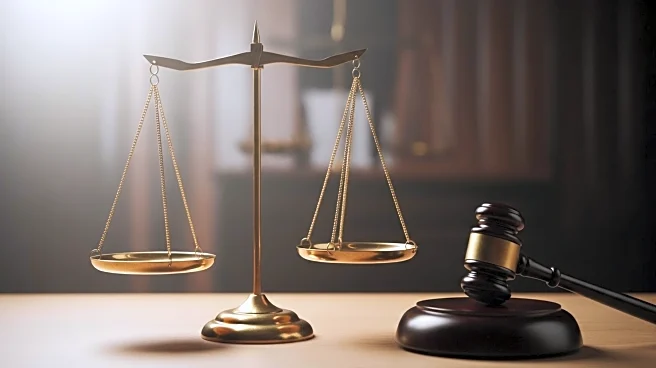What's Happening?
The Canadian self-defence law, revised under former Prime Minister Stephen Harper, is under scrutiny following a recent incident in Lindsay, Ontario. The law allows individuals to use force if they reasonably believe they are under threat, provided the response is 'reasonable in the circumstances.' This issue came to the forefront after Jeremy McDonald allegedly defended himself with a knife against an intruder, Michael Breen, who was armed with a crossbow. Both men were charged, sparking public outrage and debate over the limits of self-defence. Conservative Leader Pierre Poilievre criticized the law as 'vague and subjective,' advocating for a presumption of reasonableness in self-defence cases. Legal experts, however, argue that the current law already provides significant leeway for self-defence, emphasizing that the Crown must prove any actions taken were unreasonable.
Why It's Important?
The debate over self-defence laws in Canada highlights the tension between individual rights and legal boundaries. The outcome of this case could influence public perception and future legal interpretations of self-defence. If the law is perceived as too restrictive, it may lead to calls for reform, potentially impacting how similar cases are prosecuted. The case also underscores the challenges faced by legal systems in balancing the right to self-defence with the need to prevent excessive force. This has implications for public safety, legal accountability, and the justice system's role in protecting citizens while upholding the rule of law.
What's Next?
The legal proceedings in the Lindsay case will be closely watched, as they may set a precedent for future self-defence cases in Canada. If the charges against McDonald are pursued, the trial could provide further clarity on what constitutes 'reasonable' force in self-defence situations. Additionally, political leaders and legal experts may continue to debate potential reforms to the self-defence law, which could lead to legislative changes. Public opinion and media coverage will likely influence these discussions, as stakeholders weigh the need for individual protection against the risk of legal overreach.
Beyond the Headlines
The case raises ethical questions about the extent to which individuals can defend themselves and their property. It also highlights cultural attitudes towards self-defence and the perceived role of the state in ensuring personal safety. The legal discourse surrounding this issue may prompt broader discussions about the balance between personal freedoms and societal norms, potentially influencing future policy decisions.










